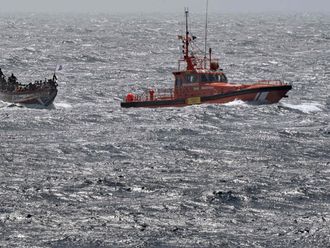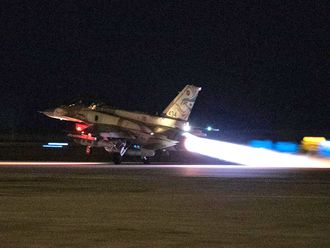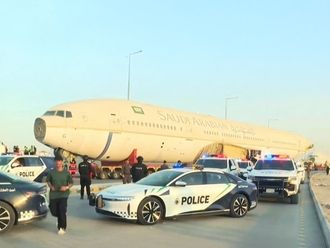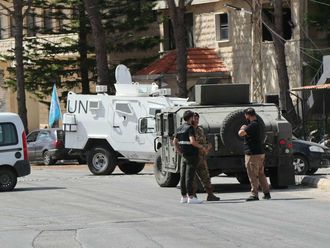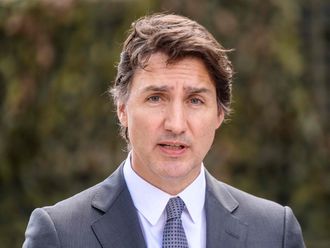Eden, Yemen: A police chief was shot dead on Thursday during a protest in south Yemen marking the 47th anniversary of the launch of its uprising against British colonial rule, a security official said.
Abdullah al-Baham was shot in the head in Mudia in Abyan province during clashes between armed demonstrators marking the anniversary and security forces who were trying to disperse them, the official told AFP.
Mudia is located to the north of Zinjibar, capital of Abyan province, which has been a focus of separatist sentiment in the south.
The security official blamed the shooting on supporters of the Southern Movement, a coalition of autonomist and pro-independence groups.
But Southern Movement official Abbas Al Assal denied its supporters were involved in the shooting, saying it was committed by a masked man "who belongs to Al Qaeda."
Assal accused security forces of "firing on peaceful protesters," adding: "We are peaceful and reject violence."
Mudia police told AFP that officers had surrounded the house of a suspected Al Qaeda member implicated in the killing of the police chief.
He accused both Al Qaeda and the Southern Movement of attacking security officials in Abyan.
On Wednesday, an intelligence officer was seriously wounded by armed motorcyclists in Seiyun, in Hadramawt province further east.
Colonel Riyadh al-Khatabi, the intelligence chief for Seiyun, died of his wounds on Thursday, a medical official said.
Another intelligence officer, Abdul Aziz Abdullah Bashraheel, was shot dead on October 8 by two masked gunmen on a motorcycle in Foha, west of the Hadramawt provincial capital Mukalla, a security official said.
And on Monday, two attackers on a motorbike in Zinjibar gunned down an officer, Ghazi al-Samawi, who featured on an Al Qaeda hit list of policemen to be killed, a security official said.
The south was independent from British withdrawal in 1967 until it united with the north in 1990. The region seceded in 1994, sparking a brief civil war that saw it overrun by northern troops.
Many residents complain of discrimination on the part of the Sanaa government, and there have been mounting protests by the Southern Movement.
The region has also seen a growing number of attacks by suspected Al Qaeda militants, who have taken advantage of popular opposition to the central government.





